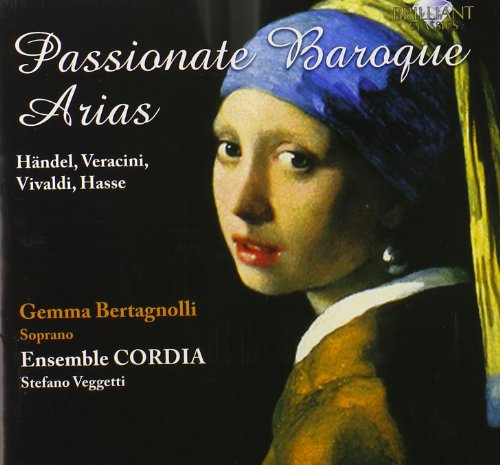| Details / Tracklist: |
1.1 L'astarto, Opera: Sinfonia. Allegro1.2 Il Trionfo Del Tempo E Del Disinganno, Oratorio, HWV 46A: Una Schiera Di Piaceri1.3 Water Music Suite No. 1 for Orchestra in F Major, HWV 348: Minuetto1.4 Adriano in Siria, Opera: Quel Cor Che Mi Donasti1.5 Water Music Suite No. 1 for Orchestra in F Major, HWV 348: (...)1.6 L'olimpiade, Opera in 3 Acts, RV 725: Lo Seguitai Felice1.7 Concerto Grosso in G minor, Op.6/6, HWV 324: Affettuoso, Allegro Ma Non Troppo1.8 Concerto Grosso in B Flat Major, Op.3/2, HWV 313: Andante1.9 Arianna in Creta, Opera, HWV 32: Son Qual Stanco Pellegrino1.10 Double Horn Concerto, for 2 Horns, Strings ; Continuo in F Major, RV 538: Largo1.11 Rodelinda, Regina De' Langobardi, Opera, HWV 19: Ritorna, Caro Dolce Mio Tesoro1.12 Giulio Cesare in Egitto, Opera, HWV 17: Sinfonia1.13 Orlando Finto Pazzo, Opera in 3 Acts, RV 727: La Speranza Verdeggiando1.14 Il Trionfo Del Tempo E Del Disinganno, Oratorio, HWV 46A: Tu Del Ciel Ministro Eletto |
 |
| Number of discs: |
1 |
 |
| Description: | In 18th-century Italian opera the solo aria - a form of musical expression held in high favor by Humanist culture (owing to it's close link with the word); was the main, indeed almost the exclusive, vehicle for expressing the characters' feelings and emotions. And the presentation of different expressive situations is surely one of the most characteristic features of Italian opera. Unlike it's French counterpart, Italian opera showed little interest in any kind of realistic representation of the plot. Instead it focused on the music. Or more specifically, it concentrated on the capacity of the human voice to arouse emotions, of which love is naturally one of the most frequently encountered. As a result, the diverse facets of love (right down to it's idealization or to it's sacrifice for reasons of state) form the standard fare of opera plots. It is something of a commonplace to consider 18th-century opera as little more than a battleground for the display of virtuoso singers. But it would be truer to say that the singers became the unchallenged masters of the opera stage precisely because their superb technique and vocal skills made it possible to highlight the emotions and give musical life to the 'affects'; in other words, to the different states of mind of the various characters. It is no coincidence that the very etymology of the term 'aria' (from the Latin aer) is linked to the concept of a musical 'mode', in the sense of a 'manner of singing'. |
 |
| No. of tracks: |
14 |
 |
| Manufacturer No.: |
BRLT94071.2 |
 |
Product Safety
Responsible Person for the EU:
Ten Dance Media GmbH
Boxhagener Str. 106, 10245 Berlin, DE
gpsr@tendance.de |
 |



















